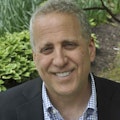The Fee-for-Service Practice: The dental team—when smaller is better
Are you stressed as a dentist or dental practice owner? What keeps you up at night? Dentists’ top stressors often include being able to pay the bills and dealing with staffing issues.
In a small, fee-for-service (FFS) practice, these challenges can be magnified due to decreased patient load and increased importance on excellent customer service. In previous articles, I’ve discussed goal setting and budget creation to help reduce the stress of bills. Here I’ll underscore the importance of a cohesive team and a different way to think about how to assemble a superstar staff.
Running a FFS practice is not easy, but among the many benefits can be less stress and true job satisfaction. The four keys I feel are essential to any successful FFS practice are a very thorough budget and goal-setting system, a CE regimen to help you provide the highest level of dentistry possible, a sincere interest in creating and enhancing relationships with your patients, and a superstar staff that reflects your office philosophy.
Laying a foundation
Like most business aspects, dental school does little to prepare us to be an HR department as well as a dental office. Let’s start with the proper foundation. How many staff members do you need? I’ve seen offices that measure success by the number of staff members. They might have two dental assistants for every dentist, at least two front desk staff, and even an assistant for their hygienists. Phew! That’s a lot of payroll and a lot of potential interpersonal squabbles to manage.
Remember the basics: in an FFS practice, you make the most with less—less inventory, fewer staff members, and less headaches. I’ve never had two dental assistants, mostly because I did not want to pay another salary. But also, in a relationship-based practice, I rarely run two chairs at a time. I spend 100% of my time and attention on the patient I’m treating at the time.
I’ve never felt the need for two front desk employees because I did not want to pay another salary. But also, since I’m not an insurance-based practice, I don’t have to deal with the bureaucracy associated with insurance. Ultimately, being a small, one-person FFS practice, I’ve always kept the staff to three employees—one assistant, one hygienist, and one front desk manager.
How to find good staff members
So, how do you find these people who will make your life easier? Let’s start with you. It’s vital to your success and peace of mind to be clear about who you are and what you want your practice to be. Creating a practice vision, mission, and values statement will help you find the right people who are in harmony with your intention. The clearer and more precise you are with your vision, the easier it will be to find the best people.
I’ll give you a good example. When I needed a new receptionist seven years ago, I was very clear about the person I wanted: someone able to multitask, who was good with collections, but most importantly, a kind and empathetic team player.
After several unsatisfactory interviews, Tina appeared. She was actually a dental assistant but had taken a break from dentistry for 10 years to raise her four boys and run a daycare business. I hired her on the spot! I could tell she was a sweet, engaging person and, more importantly, if she could handle four young boys and a daycare business simultaneously, she could certainly handle whatever my small dental practice would throw at her. She has been amazing.
Unfortunately, there is no formula for finding the best employees. But I can caution you about a few things that might be red flags in an interview. Stay away from those that blame their previous office for perceived grievances and those that spread gossip about previous employers. Always check references from the second office previous. If you talk to someone’s most recent employer, they may say anything just to get the person out of their hair.
On the other hand, when you think you’ve found that perfect employee, be prepared to pay them top dollar. You get what you pay for and if you want to be the best, you need to be surrounded by employees who are the best and they need to be paid well. Fewer employees making more money translates into a profitable and enjoyable experience for all.
You'll have to fire people too
While we’re on the subject, a vital skill in creating the ideal team is the ability to efficiently fire anyone who’s not working out. It may seem scary if you’ve never fired anyone, but it gets easier. Pro tips: never fire someone when the office is empty and you’re alone. Also, if appropriate, arrange to have the locks changed immediately after they leave. And never make it personal.
The important lesson is that one bad attitude can spoil morale. Morale is the engine that fuels an efficient, profitable practice that is actually a fun place to work. When I look for a new employee, I feel like I’m giving an amazing opportunity to the right person that can quite literally change their life.
When you have the best team, everyone enjoys coming to work, they’re invested in the success of the office, and they take it personally. I have never had the need for any bonus system because my team members are already motivated to be the best they (and by extension, we) can be!
There is so much more I could talk about when it comes to developing that superstar staff because I have 40 years of experience. I’ve had nightmare employees like everyone else, but I’ve learned through the years how to spot the diamonds in the rough and how to cut someone loose when they don’t perform up to expectations.
Ultimately, a small staff of like-minded, friendly, kind team players who are cross-trained to help in any situation is essential to providing the “wow!” experience that you need to run a successful FFS practice. This is the best way to minimize stress that I know!
Editor's note: This article appeared in the November/December 2024 print edition of Dental Economics magazine. Dentists in North America are eligible for a complimentary print subscription. Sign up here.
About the Author

Robert S. Minch, DDS
Robert S. Minch, DDS, is a graduate of University of Maryland Dental School and has enjoyed a fee-for-service practice focusing on cosmetic and complete dentistry in Baltimore, Maryland, for 40 years. He is a visiting faculty member at Spear Education and teaches Dental GPR residents at Johns Hopkins Hospital. Additionally, he has created numerous study clubs. He can be reached at [email protected].


